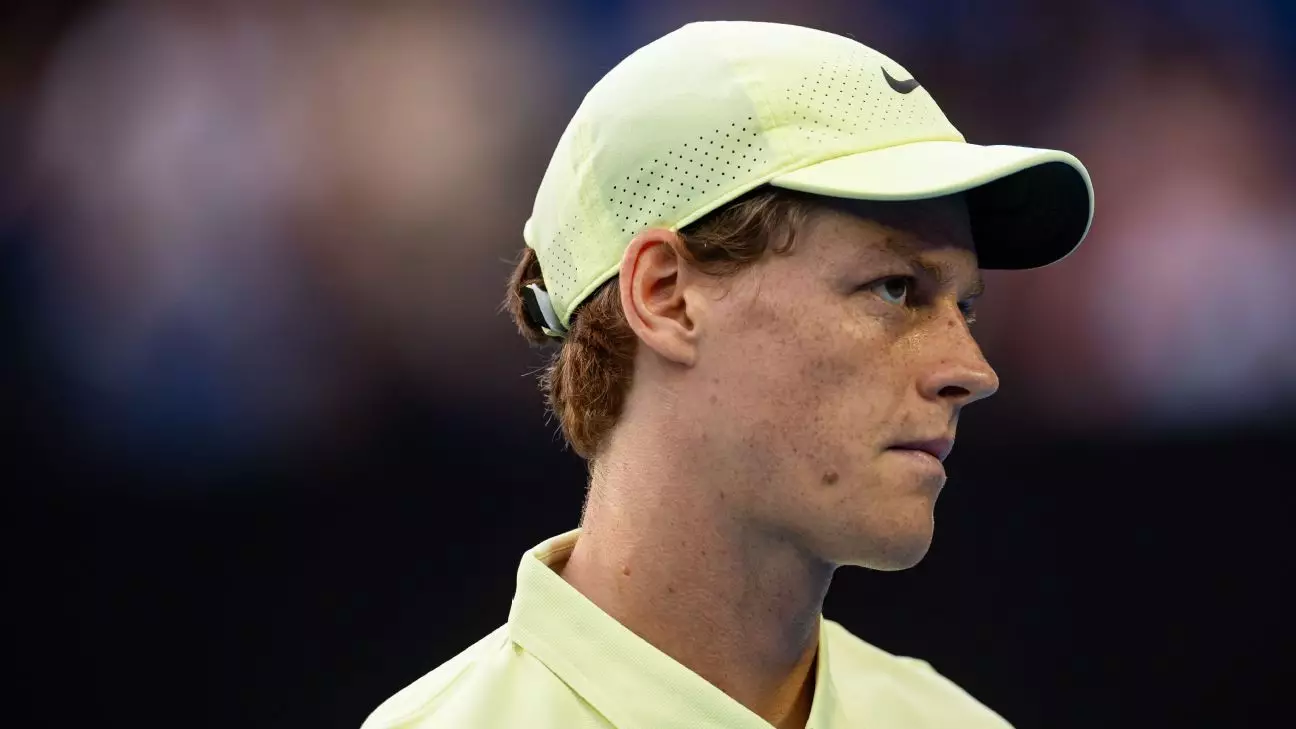Returning to tennis after a controversial doping ban, Jannik Sinner’s journey back to the courts is not just marked by his skills but also by an intricate web of relationships within the sport. While he was pleasantly surprised by the support he received from certain fellow players, the absence of any words from others whom he had expected to reach out left him bewildered. This juxtaposition speaks volumes about the fragile dynamics of camaraderie and competition in professional sports. Sinner has chosen to maintain discretion regarding who reached out and who did not, perhaps illustrating his melancholy over the emotional toll the episode has taken on him as well as the sport’s culture.
The World Anti-Doping Agency (WADA) decision to settle with Sinner, following an investigation that led to an unexpected suspension yet permitted him to avoid missing Grand Slam events, has raised eyebrows among both fans and players. Some perceivethat he was cushioned by a fortunate series of events, which diminishes the gravity of a situation that other athletes might not escape so leniently. In a sport as fiercely competitive as tennis, the sense of fairness is paramount, and any perceived disparity can sow seeds of distrust among players.
Walking the Fine Line Between Performance and Perception
Sinner’s statements regarding his discomfort in the locker room highlight an often overlooked aspect of elite sports: the intense scrutiny players endure from their peers. Although he triumphed at the Australian Open this past January, he felt the weight of judgment from those around him, sensing that his actions—or lack thereof—transformed public perception. The eyes looking his way weren’t just gazes of competition but also of judgement, complicating his ability to focus solely on gameplay.
His coach, Simone Vagnozzi, noted that the glare from teammates and competitors alike became an unwelcome distraction. For any athlete, particularly one like Sinner, who is at the forefront of a sport, this pressure can be suffocating. It raises fundamental questions about how players support one another during difficult times, actions which may seem trivial but significantly shape an athlete’s mental state. Amidst the controversy, the supportive gestures from the likes of Holger Rune’s mom, Casper Ruud, and Alexander Zverev remind us that humanity often resides alongside rivalry.
Feelings of Isolation in a Connected World
During the three-month suspension, Sinner was prohibited from entering any sanctioned sports events, isolating him from friends and communities within professional athletics. This separation was particularly hard on a budding athlete known for his competitive spirit and camaraderie, leaving him craving connection while he watched his peers participate without him. The ban was not merely a professional setback but an emotional challenge as well, highlighting the loneliness that often accompanies fame.
In a telling social media moment, professional cyclist Giulio Ciccone shared a photo on Instagram, presenting a brief glimmer of Sinner’s past connections that would have otherwise remained illuminated. These images encapsulate the isolation—proving that irrespective of one’s standing or stature, being cut off from support networks can considerably affect mental wellbeing.
Building a Future amidst Change
Looking ahead, Sinner is faced with important decisions both on and off the court. As he re-enters the competitive atmosphere at the Italian Open, he carries with him a significant weight, including a 21-match winning streak tempered by uncertainty. He hasn’t played an official match since January, clawing his way back onto the clay courts where he historically feels less confident. The upcoming confrontation with No. 99 Mariano Navone represents not just a raw competition but an emotional reawakening, highlighting the path toward recovery, redemption, and resilience.
Amidst speculation, the dynamics between Sinner and his coaches will likely evolve. With a looming retirement for veteran coach Darren Cahill, the importance of perspective in guiding a player like Sinner cannot be overstated. Elevating oneself in a sport as nuanced as tennis requires collaborative insights. Vagnozzi’s commendation of Cahill signifies the value of humility and mentorship in a field overshadowed by egos.
While Sinner prepares for his match, the entire situation serves as a poignant reminder that the world of competitive sports is as much about character and off-court dynamics as it is about skill and athleticism. Sinner’s story reflects how resilience—both personal and communal—will ultimately dictate the course of his career and define his legacy in an unpredictable realm.


Leave a Reply